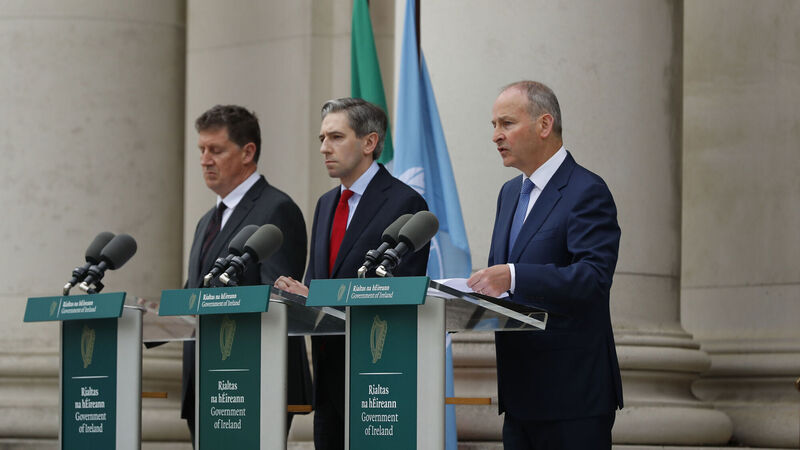Irish Examiner view: Two-state solution is now more practical

Minister Eamon Ryan, Taoiseach Simon Harris and Tanaiste Micheal Martin speaking to the media outside Government Buildings as Ireland recognised the state of Palestine. Picture: Damien Storan/PA
















